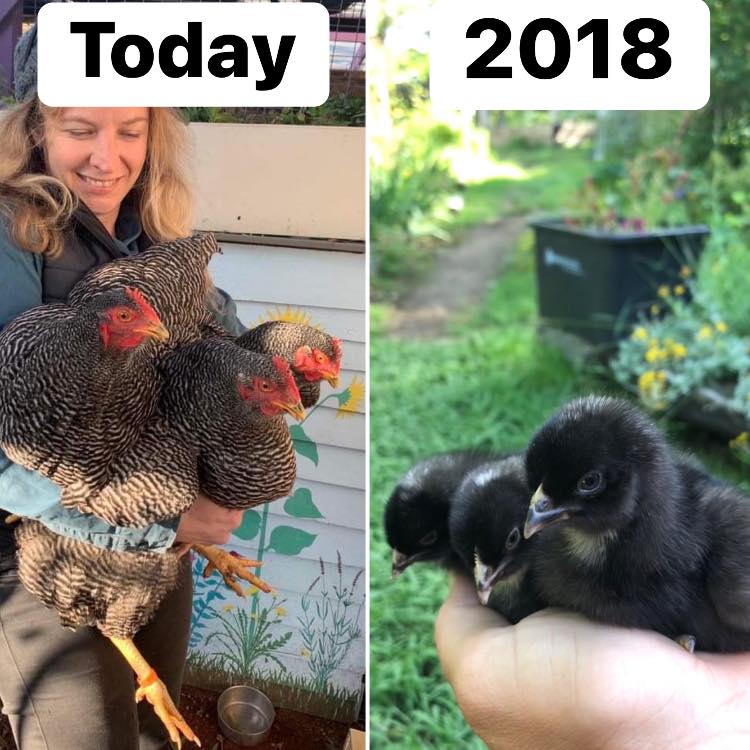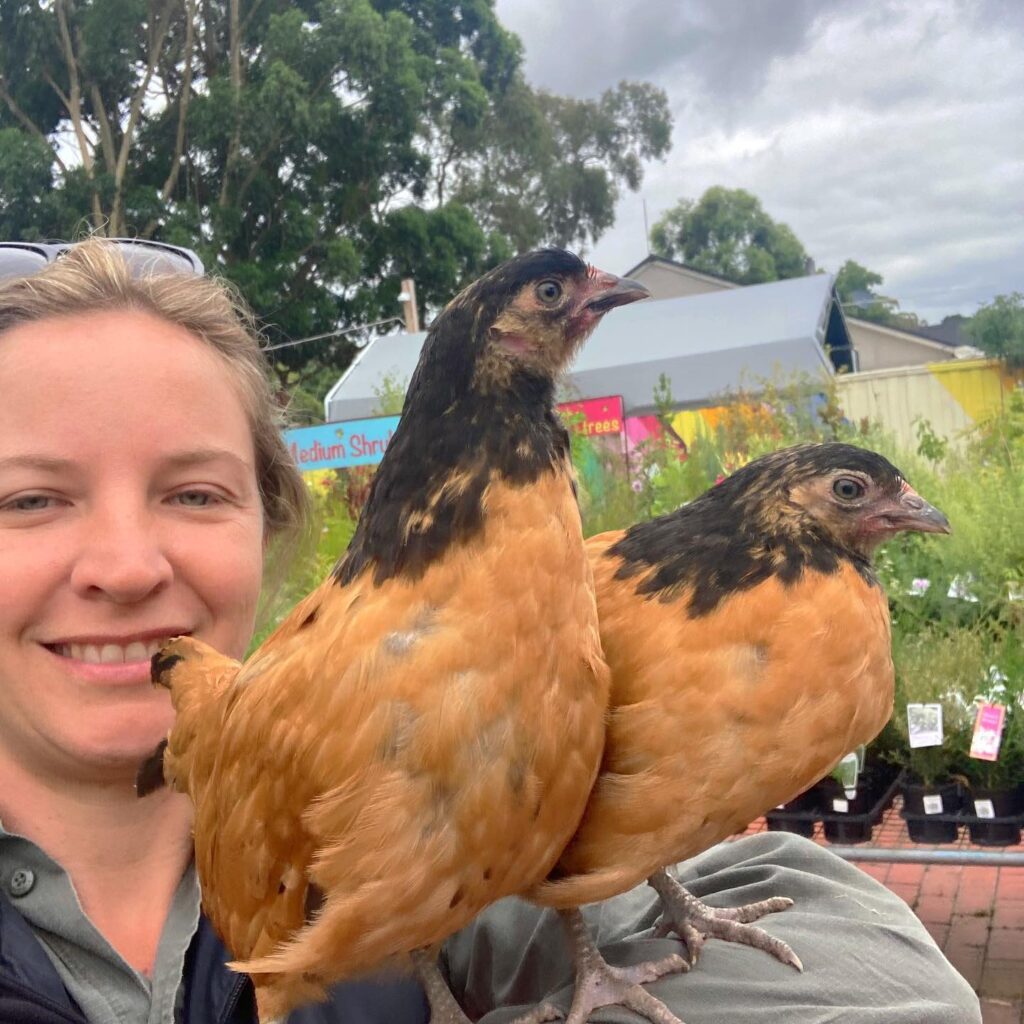At Nillumbik Nursery we have barred Plymouth Rock chickens that were hatched at Kinhaven Chickens in Kangaroo Ground and raised from little chicks.
In 2023 we added to the flock. Peaches & Pumpkin are Vorwerks from Bushwackers Birds & Bum Nuts in St Andrews.


Chooks can be great pets and what could be better than collecting fresh free-range eggs from your backyard? However, there is more to keeping chooks than just buying the birds and feeding them, to responsibly keep them you have to consider all of the following:
Housing – this is usually a much more expensive investment than the birds themselves. The most important element to any chook pen is that it is fox and predator proof – even in the suburbs there are foxes everywhere and they will be entering your backyard on a regular basis. Chook pens need to have a sheltered area to sleep in, they like to roost at night so a branch or plank needs to be supplied and they will need nesting boxes to lay their eggs in. There are minimum requirements for the size of chook pen but I have always found them to be too small for a happy chook. I would recommend chooks should have a comfortable amount of room to scratch around and exhibit normal chicken behaviour, the more room you can afford the better for the chook. But beware you might want to control their access to your garden as they can do a lot of damage to the plants, if you want chooks to roam your garden then you may benefit from getting bantams (their eggs are smaller and less frequent but they don’t cause as much damage) is an excellent demonstration on how to set up a chook pen on the Gardening Australian website; https://www.abc.net.au/gardening/factsheets/chook-run/9825504
A basic chook pen is available for sale at Nillumbik Nursery (you would also need a run) or deluxe custom made pens can be made to order though Yummy Gardens, http://www.yummygardens.com.au/, who are based in St Andrews.
Food and Water – Chooks need constant access to clean water. The more greens in your chook’s diet oranger the yolks of your eggs will be. You can feed your chickens organic food, but for optimal egg production you might choose to feed a premium a layer pellet. Hurstbridge Saddlery is a local supplier of chook food, they will also provide you with excellent advice about their diet https://www.facebook.com/hurstbridge.saddlery/
Medication – Chickens should be wormed about once every 3 months (less if they are at low risk of worms and look healthy). You may need to control lice, mites and scaly foot with neem oil, or Pestene powder (not for scaly foot). You may also need to treat other diseases if your flock is sick.
Hygiene – it depends on the size of your chook pen, the weather and the number of chooks you have, but if you have 3 or 4 birds in a medium size pen you should be prepared to clean the enclosure (particularly the bedding area) once a week. The water bowl needs to be cleaned every day or two and the food bowl should be cleaned when it gets poo on/in it. Practicing good hygiene will help to prevent disease.
Local Laws – the laws around how many birds you can keep and if roosters are permitted differ according to which local council you are in, search for the information about your local council on the web.
Where to learn more:
If you would like to learn more then it might be a good idea to join a group on Facebook to follow the challenges and success that others are having with their backyard chooks https://www.facebook.com/groups/backyardpoultry/
And attend a 3 hour workshop at Bulleen Art and Garden; bookings can be found via the following link https://bulleenartandgarden.weteachme.com/classes/1001775-the-joy-of-backyard-chooks
